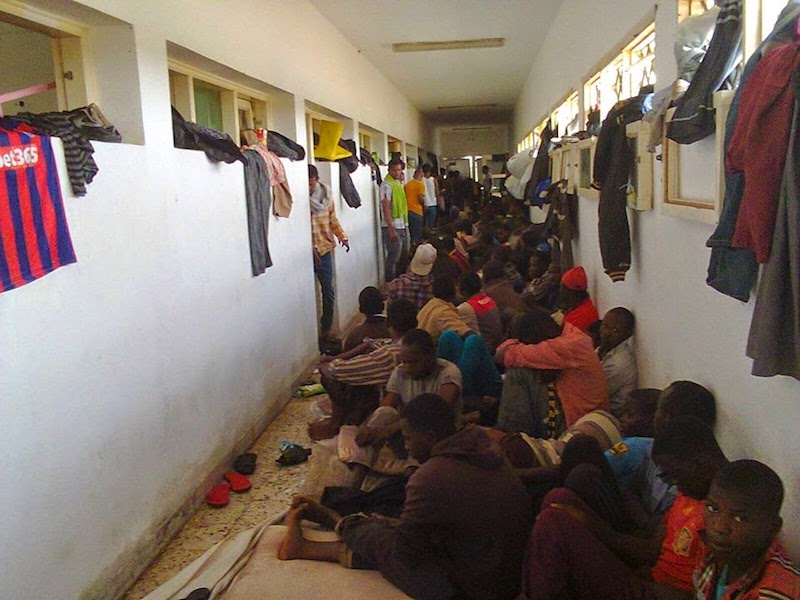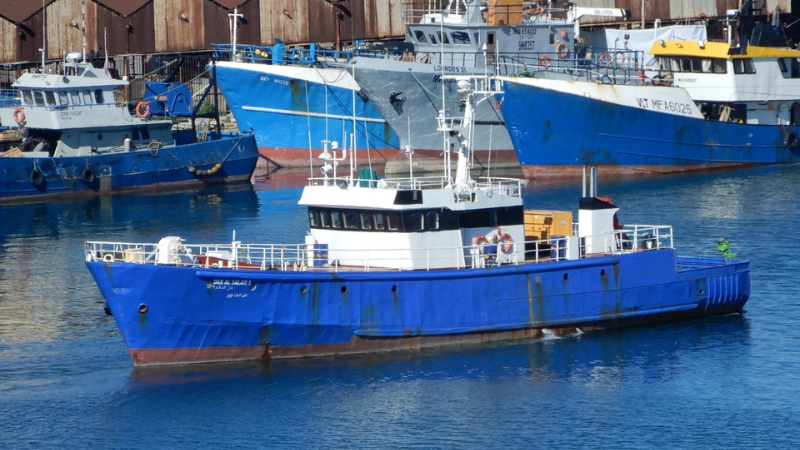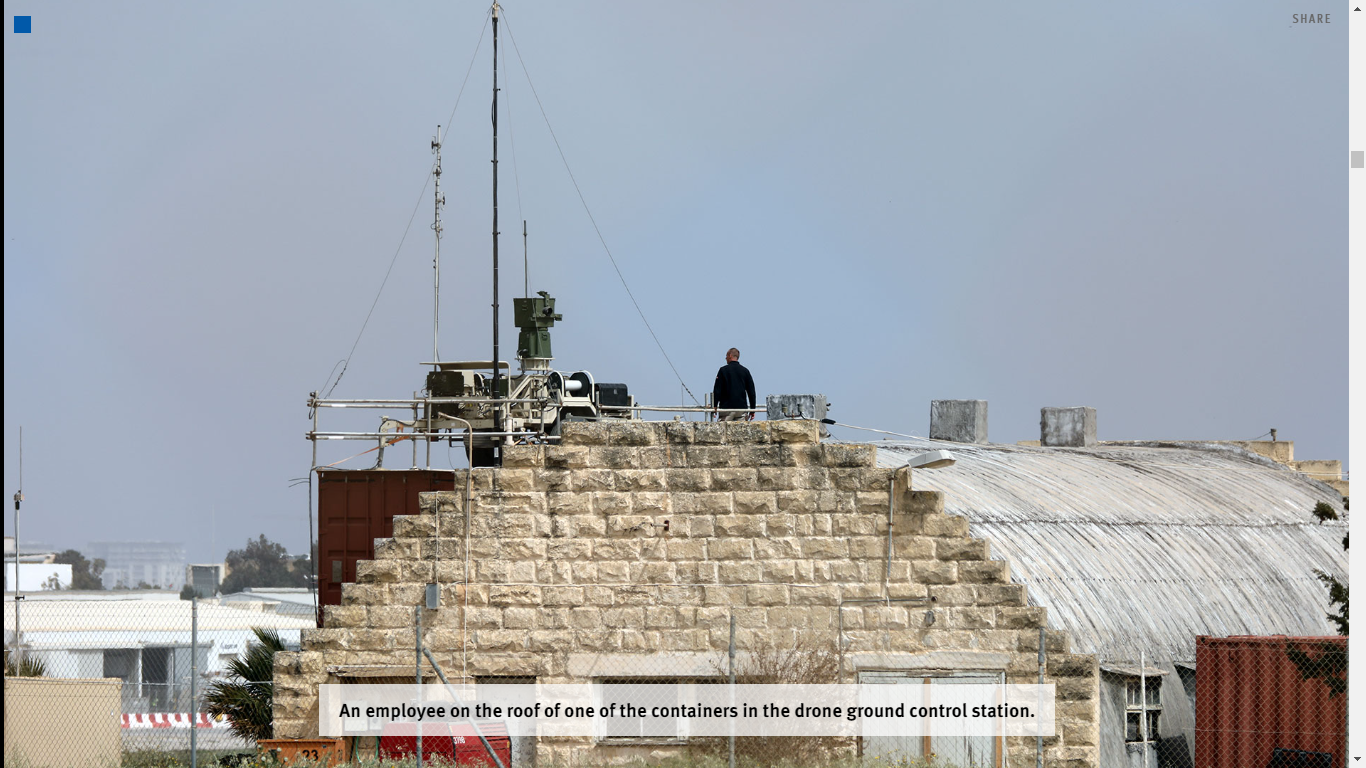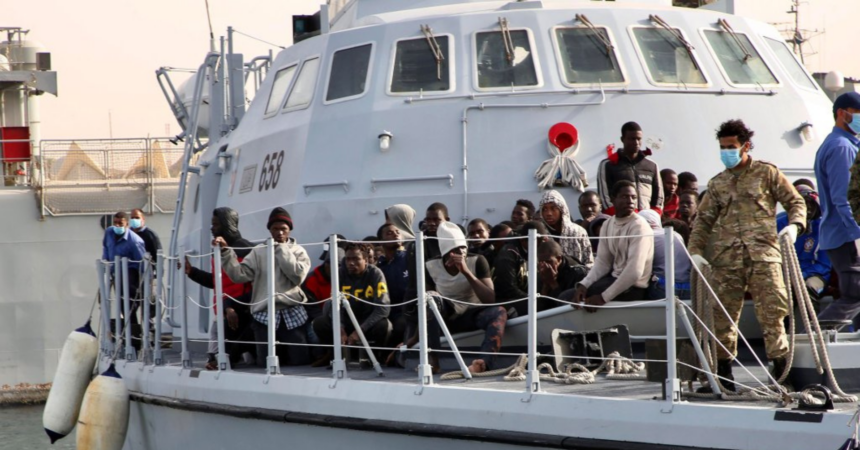Tista’ taqra dan l-artiklu bil-Malti
Over 3,000 irregular migrants, including hundreds of women and children, attempting to flee Libya for European shores were intercepted and returned to Libya in the first two months of this year alone, according to figures published by the United Nations Support Mission in Libya.
Malta has been implicated in the highly controversial practice both through accusations against the government and the Armed Forces of Malta as well as by hosting sophisticated Frontex drones and aircraft at Malta International Airport.
These operations have been shown to patrol the central Mediterranean spotting migrant boats departing from Libya and giving the coordinates to the Libyan authorities, which intercept the vessels and return the would-be asylum seekers back to detention in Libya.
The UNSMIL reports that such migrants and refugees who disembarked at Libyan ports to which United Nations humanitarian agencies have access received basic emergency relief items, as well as health-care services and protection.
“Most migrants,” it adds, “were subsequently transferred to detention centres, to which the agencies do not have regular access.”
And that is when matters take a turn worse for the irregular migrants who believed they were just one step away from making it to Europe.
The UNSMIL said it continues to receive reports of enforced disappearances and prolonged arbitrary detention of both Libyans and non-Libyans in prisons and detention centres across the country.
“The Mission continued to receive consistent reports of men and women detainees in all parts of Libya being subjected to ill-treatment, sexual violence, torture or coercive sexual practices in exchange for water, food or essential items.”
The UNSMIL also observed what it described as a “concerning increase” in the detention of migrant children in violation of the country’s obligations under international human rights law.
Many of the children detained, it says, were also victims of trafficking and abuse.
The mission reports it has verified 24 cases of children abducted from Sudan, where they had been registered as asylum seekers and subsequently trafficked to Libya.
Monitoring by UNSMIL indicated that these children were “subjected to further human rights violations in Libya, including forced labour in military compounds without payment”.
60 migrant and refugee unaccompanied children were being arbitrarily detained at the Shari‘ al-Zawiya detention centre, “with no prospect of release”.
The mission also made specific reference to how the Department for Combating Illegal Migration in Kufrah recently expelled more than 400 migrants and asylum-seekers, including women and children, mainly from Chad and Sudan.
Noting that international organisations had not been granted access to the facility, the UNSMIL reported that, “Prior to their expulsion, the detainees had been reportedly subjected to trafficking, torture, sexual and gender-based violence and extortion and had suffered from serious illnesses owing to a lack of access to basic health care.”

A Libyan detention centre. Photo: MSF
At the beginning of March, the number of migrants detained in government-operated detention centres stood at 3,817, of whom 913, or 24 per cent, were classified as potential persons of concern by the UNHCR.
Most of the detainees accounted for were held in Tripoli at Ayn Zarah (1,875 individuals), while others were held in the east (1,119 individuals), the south (100 individuals) and the west (79 individuals).
The United Nations continued to receive reports of hundreds of other migrants and refugees detained and subjected to human rights abuses in facilities operated by armed groups.
In fact, the mission cites various sources indicating “that about 12,000 other individuals, including migrants and asylum-seekers, were detained in unofficial places of detention under the control of militias and armed groups”.
Pushback accusations against Muscat and Abela before the ICC
Current Prime Minister Robert Abela and his predecessor Joseph Muscat were accused last November of crimes against humanity in a criminal complaint submitted to the International Criminal Court by the Germany-based European Centre for Constitutional and Human Rights.
The ECCHR is asking for them to be investigated over their “individual criminal responsibility” for the pushback of irregular migrants to Libya and the consequences of those actions.
They have been individually accused before the International Criminal Court of committing several “crimes against humanity in the form of the severe deprivation of physical liberty” between 2018 and 2021 by having systematically intercepted boats in the central Mediterranean and sending would-be asylum seekers back to detention in Libya.
OLAF alleges Malta pushback cover-up
Malta has been implicated numerous times in pushback accusations by various humanitarian NGOs plying the central Mediterranean.
But an internal audit of Frontex by the EU’s anti-fraud agency OLAF recently went so far as to have alleged a cover-up of illegal pushbacks of asylum seekers from Malta’s search and rescue zone.
It details a Serious Incident Report about four migrant boats carrying some 250 passengers spotted in Malta’s search and rescue zone between 10 and 12 April 2020.
The incident took place when Malta had closed its ports to irregular migrants and when the Maltese government engaged private fishing vessels to conduct pushbacks, coordinated by notorious government official Neville Gafa under the instructions of the Office of the Prime Minister, of migrants to Libya during the height of the Covid-19 pandemic.
The 120-plus page report concludes that it was likely that one boat was “probably towed” to Italy by Maltese authorities, while another was pushed back to Libya by a fishing vessel registered in Libya but based in Malta.

The Dar al Salam 1, captained by Carmelo Grech, which conducted the illegal pushback of 51 irregular migrants to Libya in April 2020 at the behest of the Maltese government.
When it arrived in Tripoli, it was carrying five dead irregular migrants.
Malta’s Frontex pushback surveillance flights
A drone registered and operated out of Malta by a private company on behalf of the European Union’s border control agency Frontex was been implicated last December in human rights abuses by an in-depth multimedia analysis published by Human Rights Watch.
The drone, as well as five aeroplanes being run out of Malta and, to a far lesser extent, Sicily, have been found to be relaying information on migrant boats leaving Libya to the Libyan authorities.

The drone Frontex uses to conduct aerial surveillance in the central Mediterranean in front of its hangar at Malta International Airport. © 2022 Border Forensics
Libya then carries out pushback operations (on behalf of European countries) where irregular migrants heading for Europe are returned to Libyan detention camps where they are routinely tortured.
An analysis published by the humanitarian organisation shows, “How the agency [Frontex] uses aerial surveillance demonstrates that it is in service of interceptions, not rescues.
“Without the information from EU aircraft, the Libyan Coast Guard would not have the technical and operational means to intercept these boats on such a scale.”

The operational base at Malta International Airport. Photo: Human Rights Watch
As with the drone operations in 2021, the absolute lion’s share of surveillance flights took off from Malta International Airport. In all, there are five aeroplanes and a single drone being used for the highly-questionable operation.
Operated by Airbus subsidiary ADAS the drone is piloted from a dedicated ground-control station set up at the Luqa airport’s military wing shortly before it started operating in May 2021.
The drone transmits a near-live video feed and other information captured through a wide range of optical and thermal sensors to Frontex headquarters in Warsaw, where data is analysed and operational decisions affecting its flight path are taken and fed back to Malta in a constant feedback loop.
One plane, a Diamond DA62, is registered in Malta, as is the drone, an IAI Heron.












